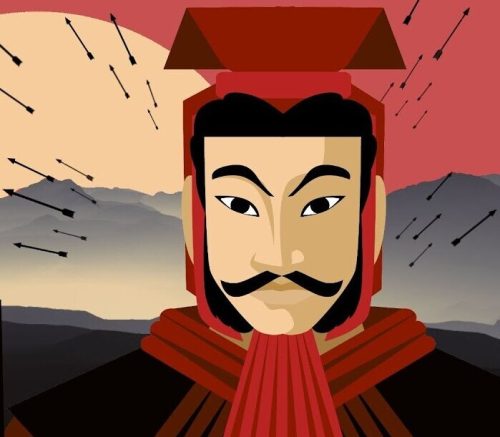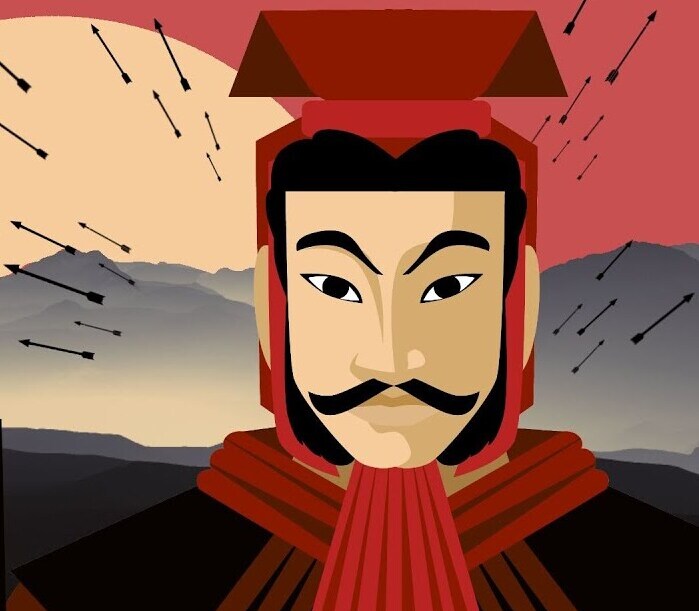
Sun Tzu was a Chinese military strategist and philosopher from the Eastern Zhou period of ancient China.
Sun Tzu is famous as the author of the book "The Art of War", a phenomenal work of military strategy that influenced philosophy and military thinking around the world, especially in Asia.
The book discusses various operations and the effect of topography and landscapes on the outcome of battles. It stresses the importance of accurate information about the enemy’s forces, and their movements.
This is summarized in the axiom “Know the enemy and know yourself, and you can fight a hundred battles with no danger of defeat.” It also emphasizes the unpredictability of battle and the use of flexible strategies and tactics.
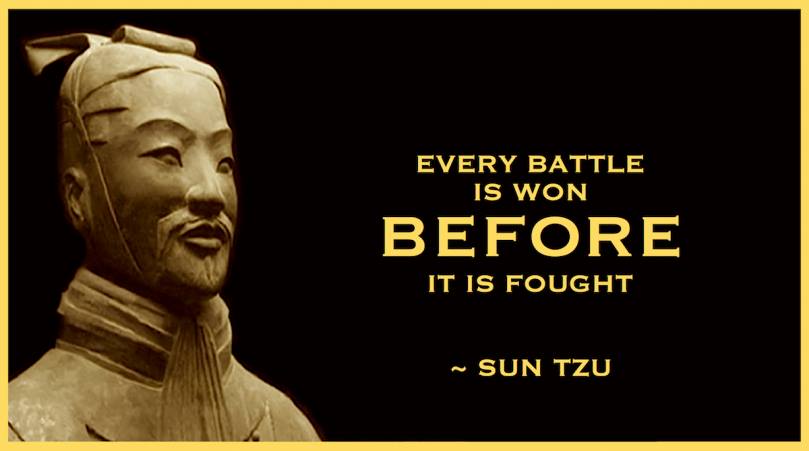
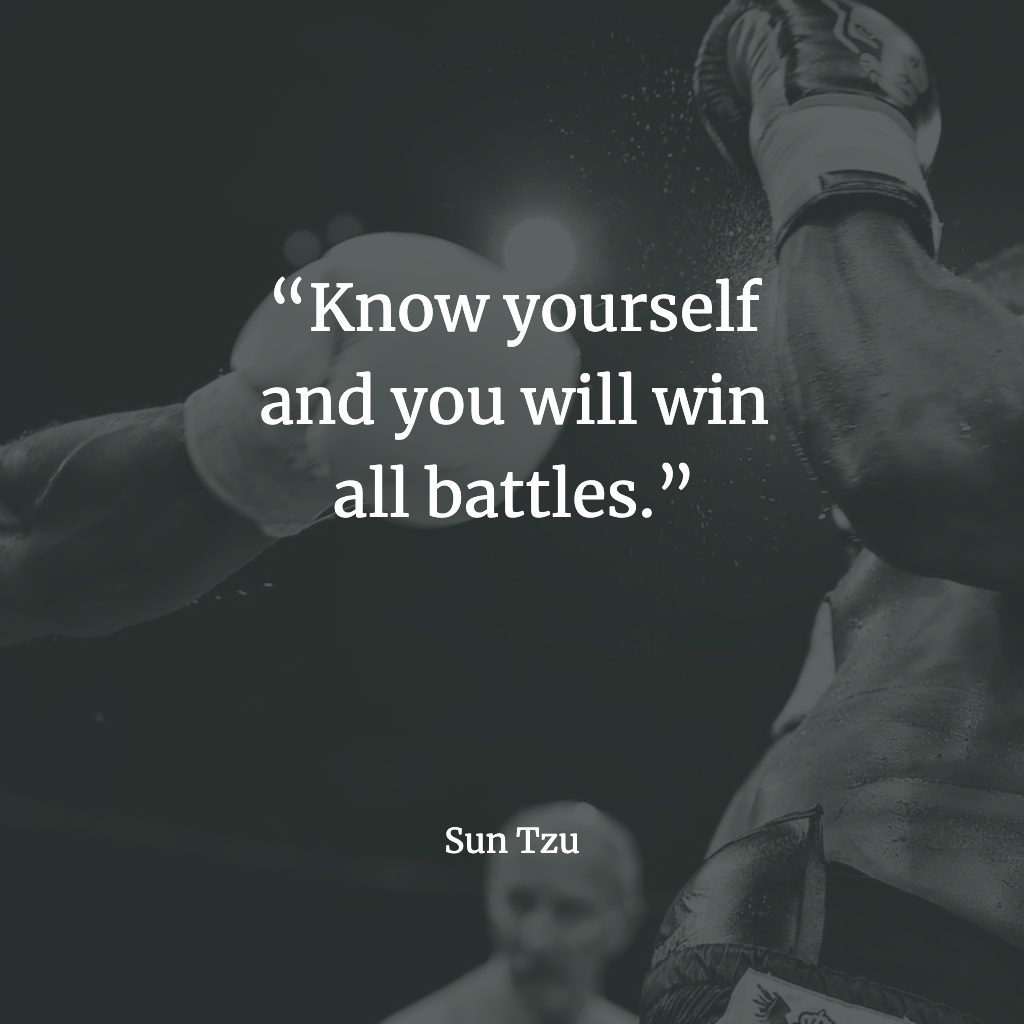
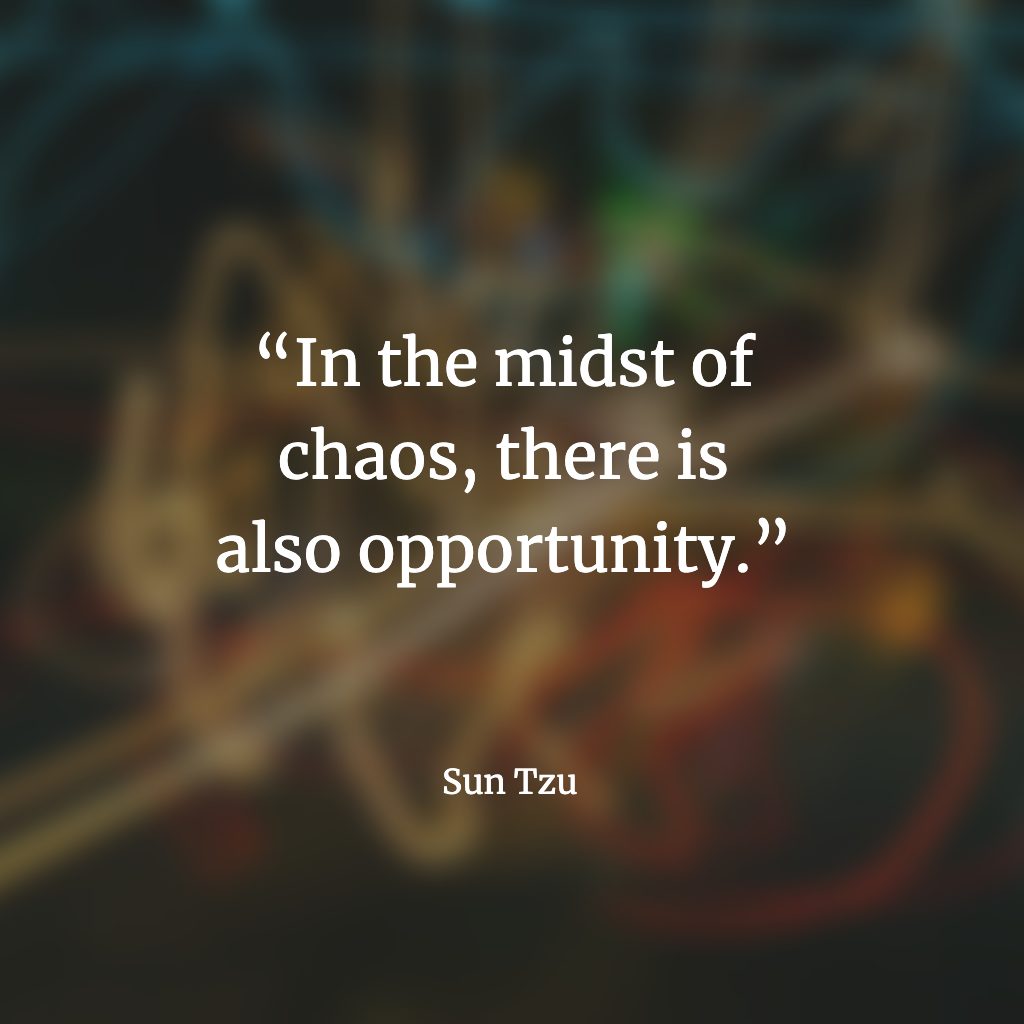
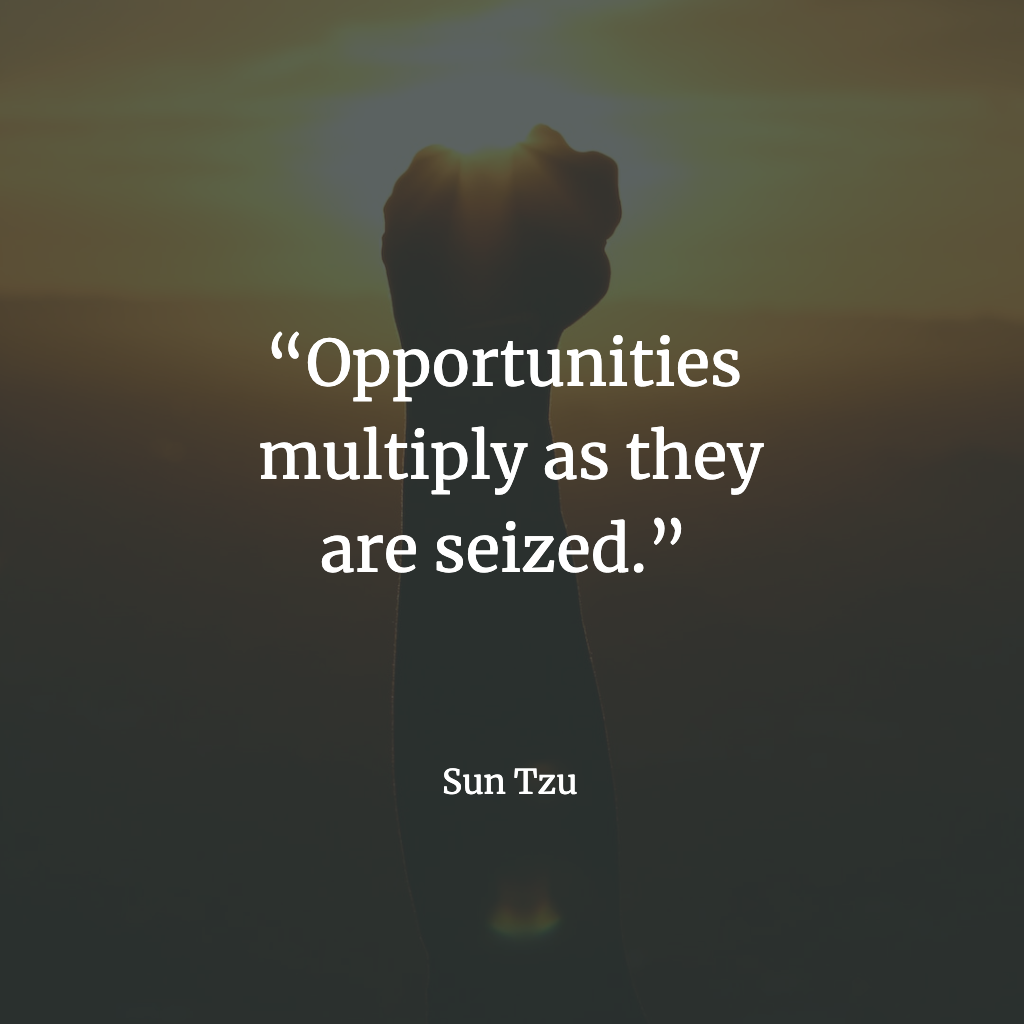
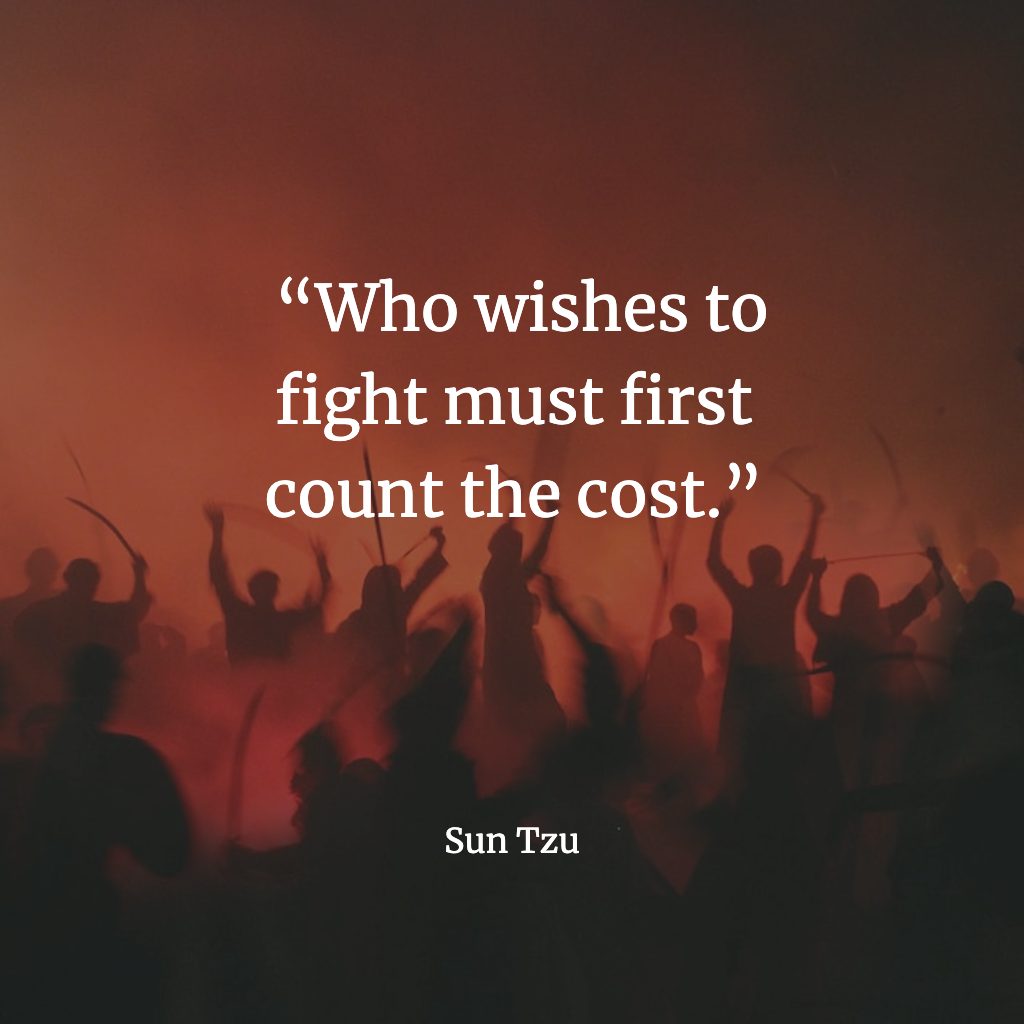
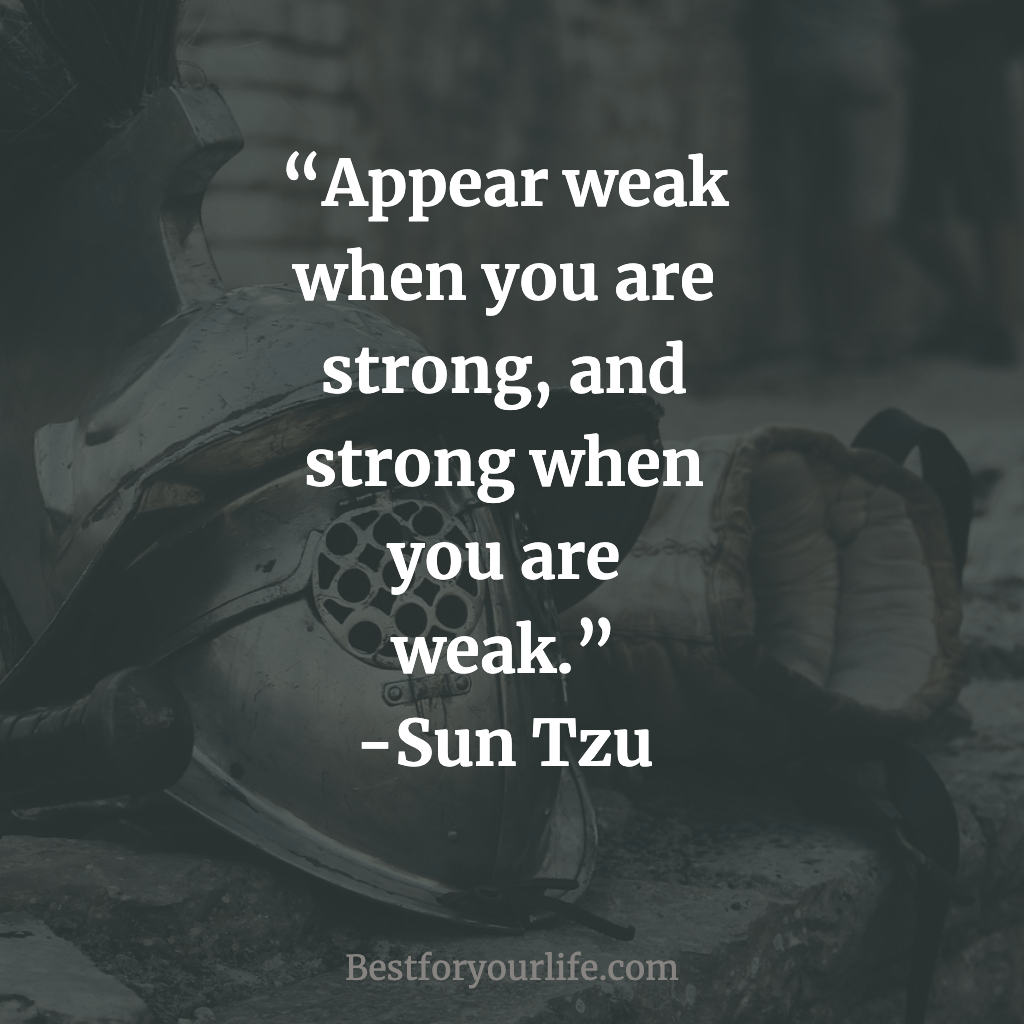
The best of Sun Tzu's quotes are compiled below:
- “Know yourself and you will win all battles.”
- “Who wishes to fight must first count the cost.”
- “Opportunities multiply as they are seized.”
- “In the midst of chaos, there is also opportunity.”
- “You have to believe in yourself.”
- “Appear weak when you are strong, and strong when you are weak.”
- “The wise warrior avoids the battle.”
- “Mystify, mislead, and surprise the enemy.”
- “The greatest victory is that which requires no battle.”
- “Build your opponent a golden bridge to retreat across.”
- “Wheels of justice grind slow but grind fine”
- “Treat your men as you would your own beloved sons. And they will follow you into the deepest valley.”
- “Let your plans be dark and impenetrable as night, and when you move, fall like a thunderbolt.”
- “The supreme art of war is to subdue the enemy without fighting.”
- “The whole secret lies in confusing the enemy, so that he cannot fathom our real intent.”
- “When you surround an army, leave an outlet free. Do not press a desperate foe too hard.”
- “Even the finest sword plunged into salt water will eventually rust.”
- “Great results, can be achieved with small forces.”
- “Attack is the secret of defense; defense is the planning of an attack.”
- “Convince your enemy that he will gain very little by attacking you; this will diminish his enthusiasm”
- “Rewards for good service should not be deferred a single day.”
- “There is no instance of a nation benefitting from prolonged warfare.”
- “Thus the expert in battle moves the enemy, and is not moved by him.”
- “Knowing the enemy enables you to take the offensive, knowing yourself enables you to stand on the defensive.”
- “If ignorant both of your enemy and yourself, you are certain to be in peril.”
- “Victorious warriors win first and then go to war, while defeated warriors go to war first and then seek to win”
- “What the ancients called a clever fighter is one who not only wins, but excels in winning with ease.”
- “When the enemy is relaxed, make them toil. When full, starve them. When settled, make them move.”
- “Bravery without forethought, causes a man to fight blindly and desperately like a mad bull. Such an opponent, must not be encountered with brute force, but may be lured into an ambush and slain.”
- “To secure ourselves against defeat lies in our own hands, but the opportunity of defeating the enemy is provided by the enemy himself.”
- “Move not unless you see an advantage; use not your troops unless there is something to be gained; fight not unless the position is critical.”
- “It is only the enlightened ruler and the wise general who will use the highest intelligence of the army for the purposes of spying, and thereby they achieve great results.”
- “All warfare is based on deception. Hence, when we are able to attack, we must seem unable; when using our forces, we must appear inactive; when we are near, we must make the enemy believe we are far away; when far away, we must make him believe we are near.”
- “There are roads which must not be followed, armies which must not be attacked, towns which must not be besieged, positions which must not be contested, commands of the sovereign which must not be obeyed.”
- “When strong, avoid them. If of high morale, depress them. Seem humble to fill them with conceit. If at ease, exhaust them. If united, separate them. Attack their weaknesses. Emerge to their surprise.”
- “Be extremely subtle even to the point of formlessness. Be extremely mysterious even to the point of soundlessness. Thereby you can be the director of the opponent's fate.”
- “Engage people with what they expect; it is what they are able to discern and confirms their projections. It settles them into predictable patterns of response, occupying their minds while you wait for the extraordinary moment — that which they cannot anticipate.”
- “If your enemy is secure at all points, be prepared for him. If he is in superior strength, evade him. If your opponent is temperamental, seek to irritate him. Pretend to be weak, that he may grow arrogant. If he is taking his ease, give him no rest. If his forces are united, separate them. If sovereign and subject are in accord, put division between them. Attack him where he is unprepared, appear where you are not expected”
- “Ultimate excellence lies not in winning every battle, but in defeating the enemy without ever fighting.”
- “Water shapes its course according to the nature of the ground over which it flows; the soldier works out his victory in relation to the foe whom he is facing.”
- “The general who advances without coveting fame and retreats without fearing disgrace, whose only thought is to protect his country and do good service for his sovereign, is the jewel of the kingdom.”
- “If soldiers are punished before they have grown attached to you, they will not prove submissive; and, unless submissive, then will be practically useless. If, when the soldiers have become attached to you, punishments are not enforced, they will still be unless.”
- “When your army has crossed the border, you should burn your boats and bridges, in order to make it clear to everybody that you have no hankering after home.”
- “When one treats people with benevolence, justice, and righteousness, and reposes confidence in them, the army will be united in mind and all will be happy to serve their leaders'.”
- “In battle, there are not more than two methods of attack—the direct and the indirect; yet these two in combination give rise to an endless series of maneuvers.”
- “The end and aim of spying in all its five varieties is knowledge of the enemy; and this knowledge can only be derived, in the first instance, from the converted spy. Hence it is essential that the converted spy be treated with the utmost liberality.”
- “There are five dangerous faults which may affect a general: (1) Recklessness, which leads to destruction; (2) cowardice, which leads to capture; (3) a hasty temper, which can be provoked by insults; (4) a delicacy of honor which is sensitive to shame; (5) over-solicitude for his men, which exposes him to worry and trouble.”
- “Deep knowledge is to be aware of disturbance before disturbance, to be aware of danger before danger, to be aware of destruction before destruction, to be aware of calamity before calamity. Strong action is training the body without being burdened by the body, exercising the mind without being used by the mind, working in the world without being affected by the world, carrying out tasks without being obstructed by tasks.”
- “For should the enemy strengthen his van, he will weaken his rear; should he strengthen his rear, he will weaken his van; should he strengthen his left, he will weaken his right; should he strengthen his right, he will weaken his left. If he sends reinforcements everywhere, he will everywhere be weak.”
- “No ruler should put troops into the field merely to gratify his own spleen; no general should fight a battle simply out of pique. If it is to your advantage, make a forward move; if not, stay where you are. Anger may in time change to gladness; vexation may be succeeded by content. But a kingdom that has once been destroyed can never come again into being; nor can the dead ever be brought back to life.”
Sun Tzu's work has been praised and used in East Asian warfare for a long time. His Book 'Art of War' became popular and is used practically in modern warfare.
The book provides insight into effective strategies and tactics for both the military and business.
His teachings are based on the idea of using strategy and deception to gain an advantage over the enemy. He emphasizes the importance of knowing yourself and your enemy, as well as understanding the terrain and the environment.
The book continues to influence many aspects of society including culture, politics, business, and sports.







